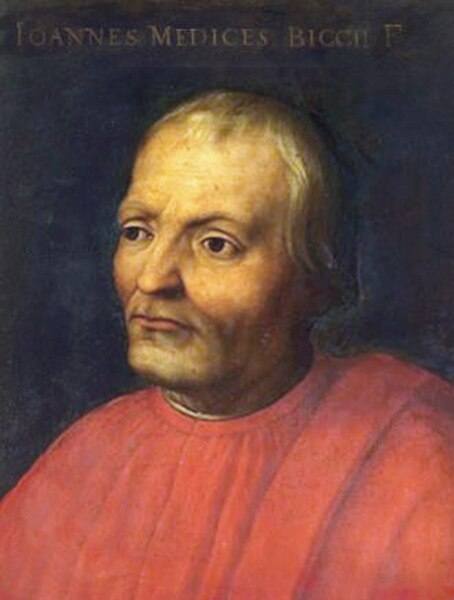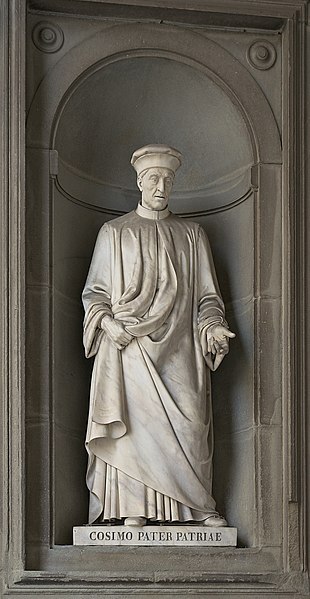Pope Leo XI, born Alessandro Ottaviano de' Medici, was head of the Catholic Church and ruler of the Papal States from 1 April 1605 to his death, on 27 April 1605. His pontificate is one of the briefest in history, having lasted under a month. He was from the prominent House of Medici originating from Florence. Medici's mother opposed his entering the priesthood and sought to prevent it by having him given secular honours, but after her death he eventually was ordained a priest in 1567. In his career he served as Florence's ambassador to the pope, Bishop of Pistoia, Archbishop of Florence, Papal legate to France, and as the cardinal Prefect for the Congregation of Bishops and Regulars. He was elected to the papacy in the March 1605 papal conclave and served as pope for 27 days.
Leo XI in a 1605 engraving
Tomb of Leo XI in St. Peter's Basilica, by Alessandro Algardi
The House of Medici was an Italian banking family and political dynasty that first consolidated power in the Republic of Florence under Cosimo de' Medici, during the first half of the 15th century. The family originated in the Mugello region of Tuscany, and prospered gradually until it was able to fund the Medici Bank. This bank was the largest in Europe during the 15th century and facilitated the Medicis' rise to political power in Florence, although they officially remained citizens rather than monarchs until the 16th century.
Giovanni di Bicci de' Medici, founder of the Medici bank
The Confirmation of the Rule, by Domenico Ghirlandaio
Cosimo Pater patriae, Uffizi Gallery, Florence
The Medici Wedding Tapestry (1589).






